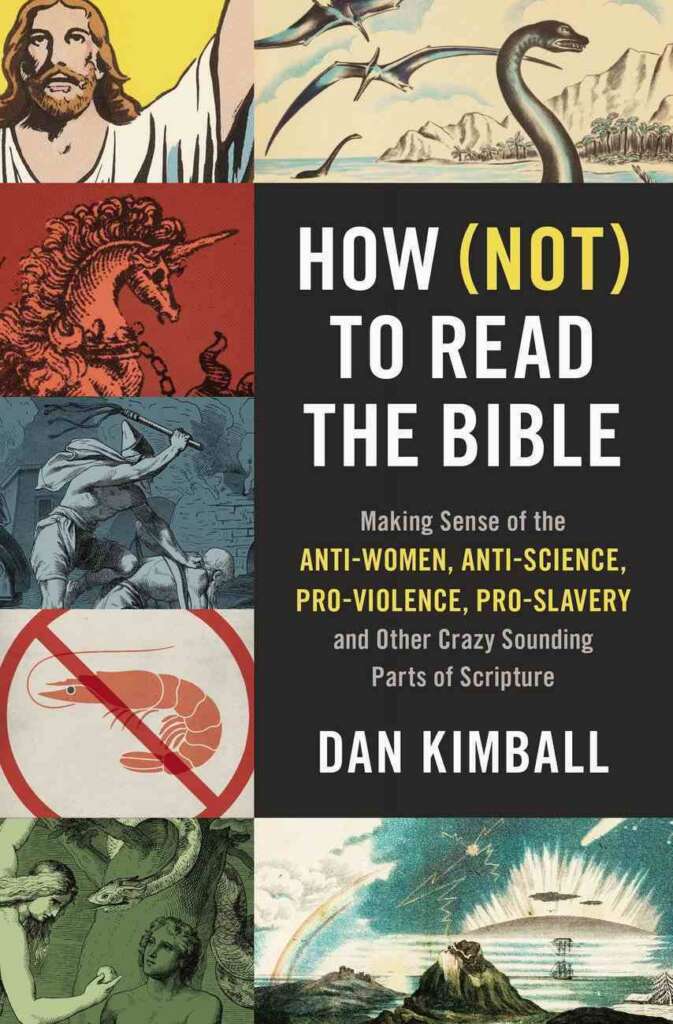Dan Kimball has had his hair cut by the same guy for years. On one of his regular visits, they were talking about faith, and his hairdresser said:
“I didn’t realise you believe in unicorns.”
“I had no idea what he meant,” said Dan. “But he said he’d read about unicorns in the Bible online. So I went home and looked it up. And, sure enough, there were a lot of memes pointing out that there are actual Bible verses with unicorns in them.”

In the King James Version of the Bible, the most famous and enduring English translation of the Bible from 1611, there are unicorns.
“God brought them out of Egypt; he hath as it were the strength of an unicorn.” Numbers 23:22
“His glory is like the firstling of his bullock, and his horns are like the horns of unicorns: with them he shall push the people together to the ends of the earth…” Deuteronomy 33:17
“Save me from the lion’s mouth: for thou hast heard me from the horns of the unicorns.” Psalm 22:21
“And the unicorns shall come down with them, and the bullocks with the bulls; and their land shall be soaked with blood, and their dust made fat with fatness.” Isaiah 34:7
Kimball says the unicorns in this translation of the Bible was really just a mistranslation of the Hebrew word for a one-horned animal.
“They didn’t know what word to use for a one-horned animal,” he says. “So they chose the English word ‘unicorn’. But that word has become more and more mythical. In modern translations, the word is ‘wild ox’ – there were one-horned wild oxen at the time.”
 Kimball spoke with John Dickson for the Undeceptions podcast, part of the Eternity Podcast Network.
Kimball spoke with John Dickson for the Undeceptions podcast, part of the Eternity Podcast Network.
Kimball’s latest book is called How NOT to read the Bible: Making Sense of the Anti-Women, Anti-Science, Pro-Violence, Pro-Slavery and Other Crazy Sounding Parts of Scripture.
“There are some questions [about the Bible] that just keep coming up. And I think they’re coming up more and more. It’s unavoidable now to not have some sort of response,” says Kimball, who says the title of his book is pretty much the list of questions he gets almost every day.
Unicorns may have surprised him. But other questions like, “Isn’t the Bible just anti-women?” “Isn’t the Bible just in favour of violence?” “The Bible and science are just in conflict, right?” are much more common.
Kimball says that instead of being annoyed by the frequency of these questions, he has realised that these are the exact questions that would have kept him away from the Church and Christianity, too.
“As a non-Christian, if I kept seeing some of the specific verses of the Bible that keep popping up these days, I would think the Bible was just a crazy book written by human beings to describe an angry, mean God and a primitive group of people with bizarre rules.”
Kimball says Christians should think about what the Bible might seem like to those looking from outside, with very little understanding of how to read the Bible or the context in which it was written.
Reading individual Bible verses is a key culprit.
“You should never read just one Bible verse,” says Kimball. But that definitely doesn’t mean that you shouldn’t read the Bible.
“We should always be reading the scriptures through the eyes of whom they were first written to. And don’t ever read just one Bible verse. Look at the paragraph, the chapter, the book that it’s in. Where does it fit in the whole storyline of the Bible?
“Unfortunately many people don’t do this. So there are a lot of crazy interpretations of the Bible.”
Email This Story
Why not send this to a friend?




